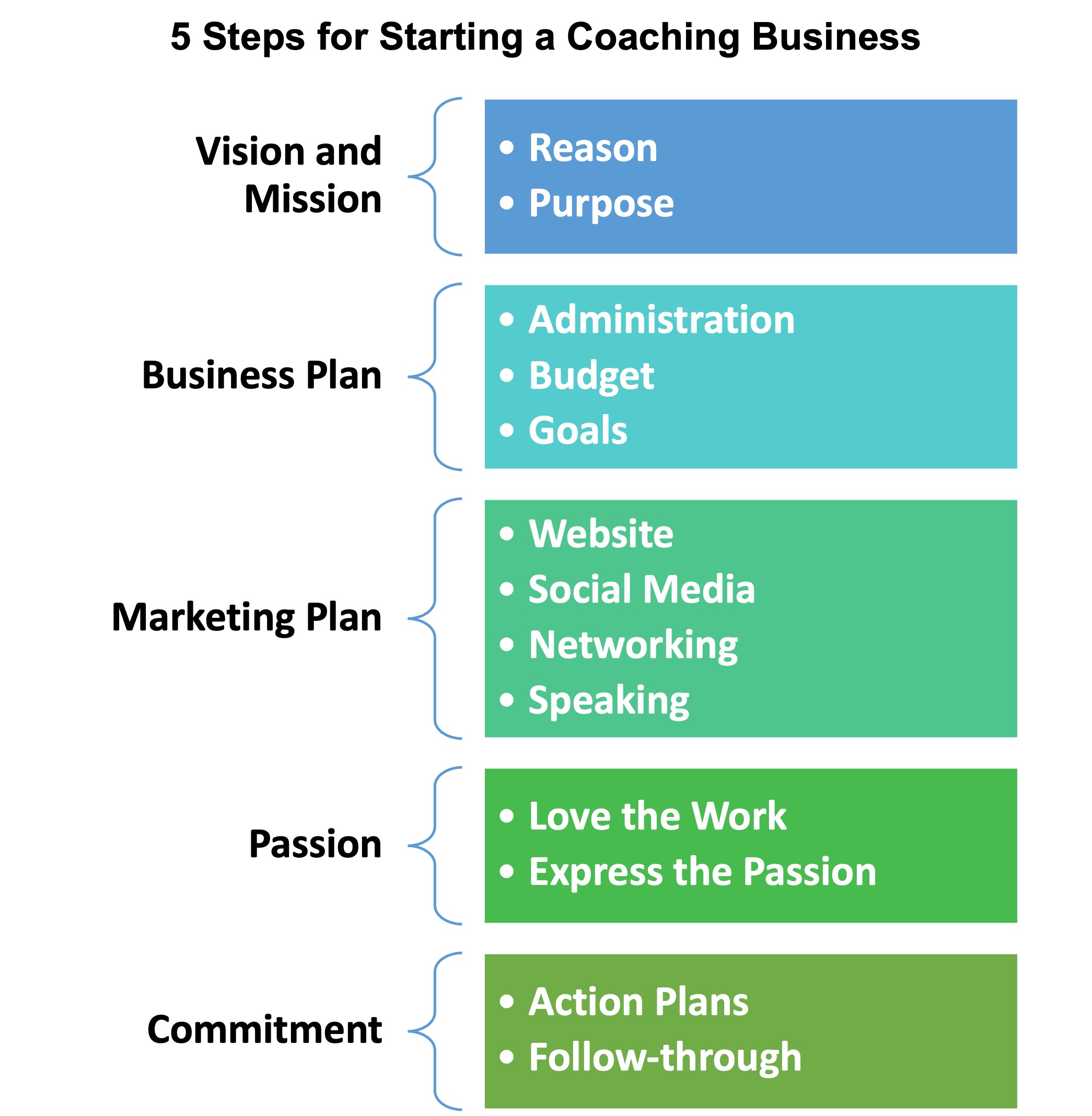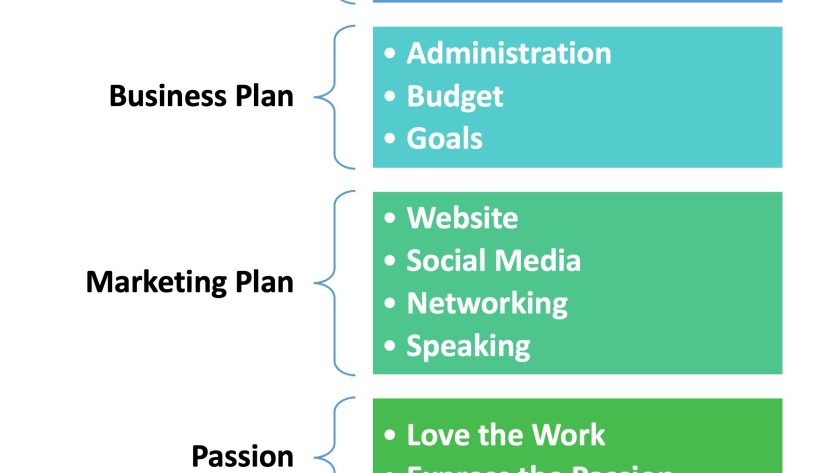In the previous blog we outlined the steps for becoming a coach. Now let’s explore how a coach starts a coaching business. Once again there are 5 Steps: 
1. Vision and Mission – the vision and the mission of a business provide the direction and focus plus serve as a tool for decision-making.
a. Reason – a vision statement describes the desired outcome that results from the work of the business.
b. Purpose – a mission statement describes the purpose of the business in terms of the work.
2. Business Plan – a formal plan that includes information on the business as well as the management, budget, and goals.
a. Administration – the portion of the business plan that outlines the structure, management team, advisors, and ongoing oversight of the business.
b. Budget – the budget will include the upfront start-up costs and then show expenses as they occur plus income when anticipated for expected cash flow.
c. Goals – the portion of the plan that lists the specific, measurable goals of the business.
3. Marketing Plan – part of a Business Plan and because it often involves a complete area of work, the Marketing Plan is often also a stand-alone document.
a. Website – this includes addressing the budget, timeline, objectives, design, and intended use as a marketing tool of the website for the business.
b. Social Media – a listing of which platforms will be used, the reason for the selection, the focus of the messaging, the goals for impact, and the schedule for posts.
c. Networking – goals in terms of events or online platforms for networking, reaching out to contacts, and defined messaging.
d. Speaking – goals for the number and type of speaking engagements plus the plan for converting leads.
4. Passion – this is the foundation of the commitment and energy for the work and supports results when marketing.
a. Love the Work – identifying the reasons for doing the work as well as what you love about it informs your dedication and focus.
b. Express the Passion – showing and sharing your passion creates buy-in for prospective clients.
5. Commitment – starting a business takes time, energy, and money. It may also (usually) involve time, energy, and money from stakeholders.
a. Action Plans – list the steps that will be taken, how they will happen, and by when.
b. Follow-through – define how you will ensure accountability.
In support of coaches starting a business, graduates of the Center for Coaching Certification are provided a multitude of tools including:
· Process for writing vision and mission statements plus listing and defining core values.
· Recordings on the Business of Coaching and Marketing Your Coaching Business.
· Monthly Q&A call.
· Business and Marketing Plan outlines and a budgeting worksheet.
· Resources on websites and social media.
· Creating a listing in an online, searchable directory for coaches.
· The opportunity to register as a coach in the coaching firm Coach-123.



